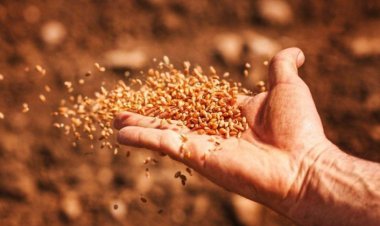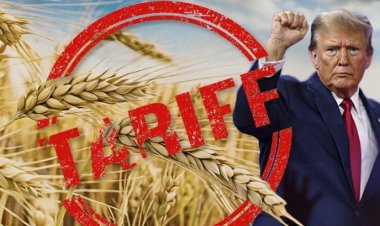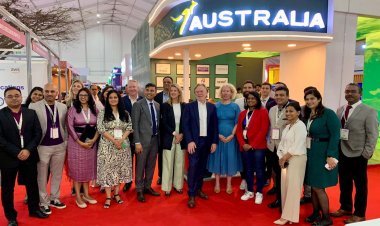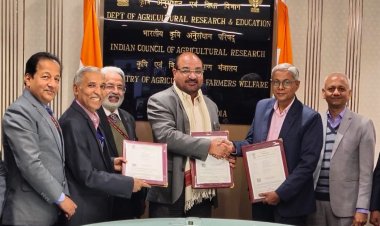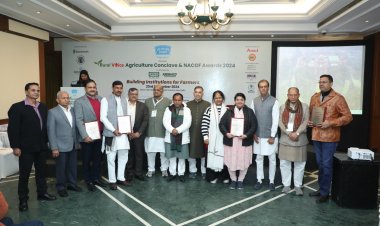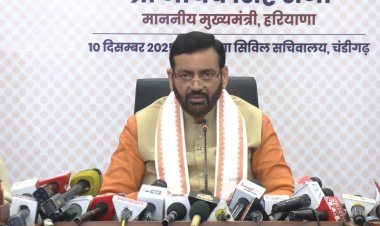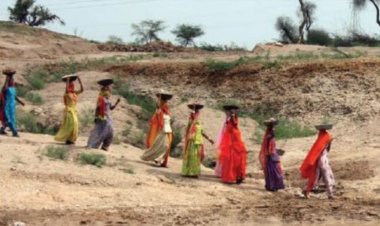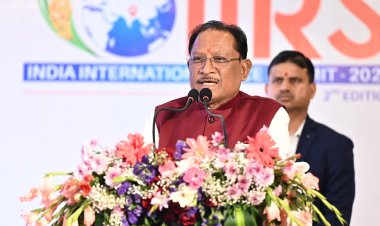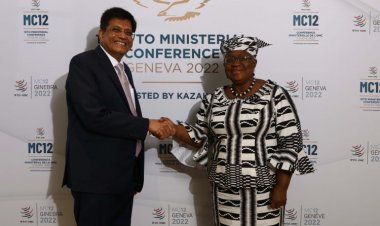Need to shift from foods that add to climate change problem: Prez
President Droupadi Murmu has said there is a need to shift away from those foods which add to climate change problem and opt for healthy foods that do not cause any harm to nature. She also expressed concern over hunger problem in many parts of the world and said the "large scale prevalence of hunger" is due to lack of distribution as the world is producing enough food.
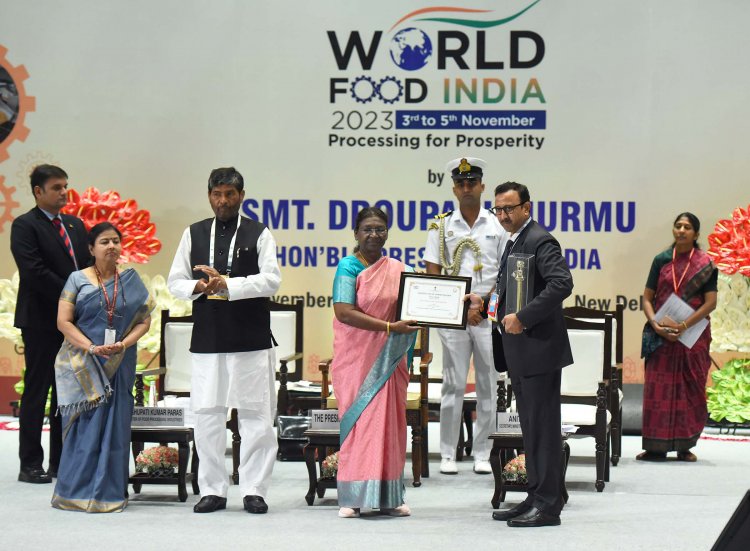
President Droupadi Murmu has said there is a need to shift away from those foods which add to climate change problem and opt for healthy foods that do not cause any harm to nature. She also expressed concern over hunger problem in many parts of the world and said the "large scale prevalence of hunger" is due to lack of distribution as the world is producing enough food.
She was speaking here at the valedictory session of the World Food India (WFI) event, which saw an investment commitments of around Rs 35,000 crore during the three-day programme (November 3-5). The first edition was held in 2017, but in consecutive years the event could not be organised due to the COVID-19 pandemic.
"We must consider the environmental cost of what we eat. The previous generations did not have to worry on this count," Murmu said. "The time has come when we have to choose our menu in a way that avoids any harm to nature," she added. The president called for shifting away from those foods that affect climate and moving towards environment-friendly menu.
"We need to make conscious decisions to shift away from those foods that add to the problem of climate change and to shift towards the ones that are good for not only our health but also for the health of the planet," Murmu said. Noting that food remains one of the basic necessities, the president said,"It is distressing indeed to realise that a substantial number of human being go to bed on an empty stomach in many parts of the world."
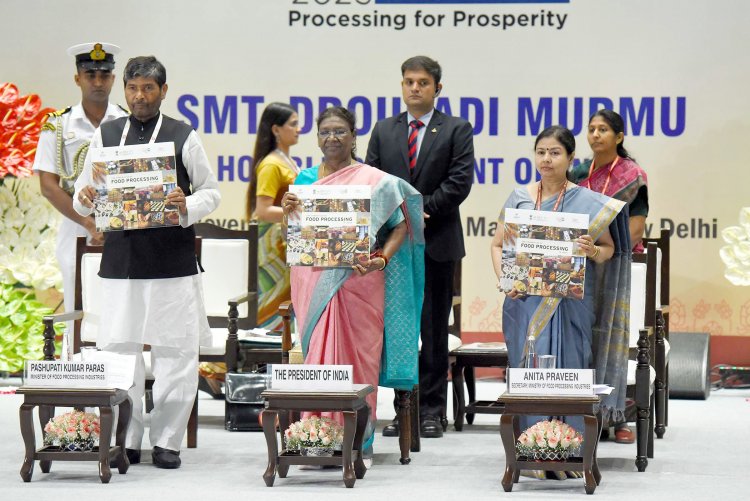
This puts a strain on the great economic and technological progress humankind has achieved, she said, adding that the world was producing enough food as crop yields have improved. "The large scale prevalence of hunger is not due to the lack of production but due to lack of distribution," she asserted.
During the COVID pandemic, Murmu highlighted that the central government consistently provided free food grains to poor apart from the subsidised wheat and rice. "It was arguably the biggest drive of its kind," she said. Talking about the World Food India, the president said the event would go a long way in making the rich Indian food culture more familiar to the world. The WFI would prove to be a great platform for micro, small and medium enterprises (MSMEs) in this sector to better align themselves with big domestic and global companies, she said.
"From a business perspective, India offers an exciting opportunity. Its fast growing economy offers a large market. Moreover, its rich knowledge base of agricultural and food processing offers lessons for our times," Murmu said at the event, which saw participation from more than 80 countries. The president highlighted that the first edition of this event attracted a large number of investment commitments and "Rs 22,711 crore of investment has been grounded or completed so far".
In this second edition of World Food India, she said, the global investors must have found immense opportunities in India's food processing sector. "WFI has the potential to help India become a kitchen to the world," she said. Innovators and entrepreneurs would have found much opportunities at the event.
Food Processing Industries Minister Pashupati Kumar Paras said there is a great potential in this sector. He said the food processing contributes 75 per cent to India's total agricultural exports. MoUs for investments of around Rs 35,000 crore were signed during the three-day event, Paras said, adding that the programme has been successful with the efforts of all the stakeholders.
On the first day of World Food India, a total of 16 Memoranda of Understanding (MoUs) were signed between the food processing ministry and various industry entities. These 16 agreements amounted to a total investment of around Rs 17,990 crore. Notable companies participating in these MoUs included Mondelez, Kellog, ITC, Innobev, Nedspice, Ananda, General Mills, and Ab Inbev, among others.
The second edition of World Food India aimed to showcase India as 'food basket of the world'. The event provided a networking and business platform for government bodies, industry professionals, farmers, entrepreneurs and other stakeholders to engage in discussions, establish partnerships, and explore investment opportunities in the agri-food sector.
During the event, CEOs' roundtables were held with focus on investment and ease of doing business.



 Join the RuralVoice whatsapp group
Join the RuralVoice whatsapp group

















